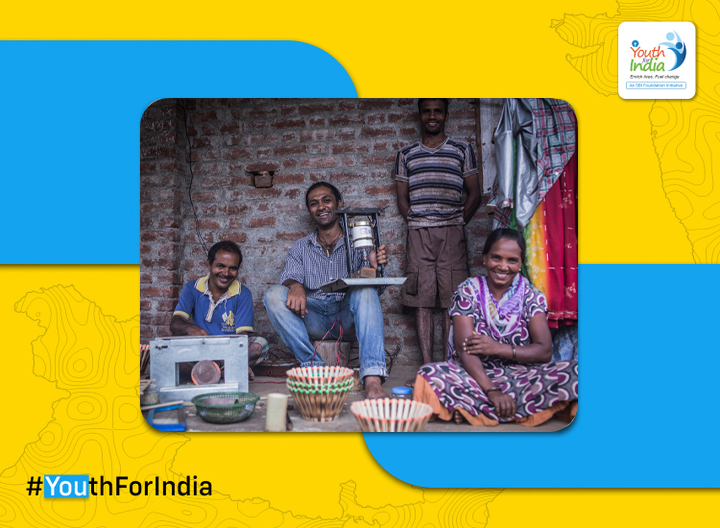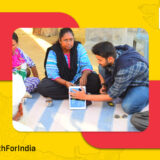
How to Be a Change Maker – Part 1
1. What is a change maker?
A change maker is someone who spots opportunity that will contribute to the greater good. They creatively set about innovating to fulfil that opportunity. The change maker inspires and influences others to join and support them in their change making journey, persisting until the positive difference is achieved.
The term change maker was popularized by Bill Clinton, who often described his wife, Hillary Clinton, as a change maker. In fact, change maker was the term first used by Bill Drayton (Yale Law) in the 1970s.
2. What is another word for change maker?
Other words for change maker include:
• Innovator
• Entrepreneur
• Intrapreneur
• Change agent
• Change leader
• Reformer
• Influencer
• Mover and shaker
• Activator
• Agitator
• Disruptor
• Spearhead
Sometimes, ‘change maker’ appears as one word: ‘changemaker’; or with a hyphen: ‘change-maker’.
Thought Leadership and Innovation Livestream.
3. What is the role of a change maker?
The role of a change maker is to achieve positive change for the greater good by taking innovative action. It is also to influence and inspire others to join, support and contribute to the change effort until it is achieved.
Change makers work in a variety of contexts. Some examples are: social change, business, education, environment, technology.
4. What is the relationship between change making and innovation?
Innovation is a new method, idea or product that satisfies a need and creates value. Something innovative renews or alters the way something has been done.
Innovation requires the skills of creativity, critical thinking, communication, strategic thinking and problem solving.
Innovation and change making are inextricably linked.
Change making is about making innovation happen. It’s also about spreading great ideas for positive change, and influencing others to actively contribute towards making a positive difference.
Innovation is structural, change is about people. A change maker combines the two to create a lasting, meaningful, positive difference.
5. What are change maker values?
Values are the important beliefs and guiding principles that we see as being non-negotiable in our lives. They are a sort of personal moral compass.
The change maker’s over-riding purpose is to contribute towards making a difference for the greater good.
Values are highly personal, so each change maker’s values are different. That said, change maker values are usually consistent with being responsible and accountable, open and transparent, doing the right thing and working collaboratively. Whatever their values, they do their best to remain true to them at all times.
6. What are the characteristics of a change maker?
Successful change makers share these characteristics:
• Resilience – the tenacity to persist, and also to withstand criticism
• Vision – a clear view of the brighter future they are working towards
• Commitment – a deep conviction, demonstrated by action, that what they are working towards really matters
• Integrity – they do the right thing, no matter how difficult that might be
• Connection – they relate to others, create community and galvanize people to join the change mission.
7. What are the skills and mindset of a change maker?
Change makers are thought leaders.
Change makers need a growth mindset to succeed. They have high levels of emotional intelligence, especially communication and influencing skills.
Leaders of change think creatively to solve problems, and to set out a compelling vision of the potential future that inspires others to take positive action. They have courage, and dare to be different.
8. Change maker talent development
As a leader, it’s important to not only be a change maker yourself, but also to develop change making talent in others.
Me and my team here at The Big Bang Partnership are super proud to be working with Port of Tyne on their Change Makers talent development programme.
Over two years, new graduates and employees of the Port will undertake the Port’s ‘Change Makers’ programme, a high performance learning and development programme aimed at developing their skills and potential at the Port, and supporting the future of the Port from within. In the first year, the programme will cover 7 modules including managing projects, communication excellence, and implementing change, amongst others identified as key capabilities for future leaders.
As part of the Change Makers programme, the participants will have the opportunity to hear from guest speakers based within the Port and externally, and the option to take advantage of regular one-to-one mentoring sessions with the Port’s leadership team.
The programme will also encourage ‘reverse mentoring’ in which the participants will be encouraged to bring their skills and knowledge, as the next generation, to help the managers, directors and executives understand new thinking and approaches to work, both culturally and professionally.
9. Who are some change makers?
Here are just a few examples of change makers:
- Anshu Gupta: Founder of Goonj, a social organization that redistributes clothing and other essential items to those in need. His innovative approach to poverty alleviation and sustainable fashion has made a significant impact.
- Kiran Mazumdar-Shaw, founder of Biocon. She has revolutionized the biotechnology industry in India, leading the way in research and development of affordable healthcare solutions.
- Sunita Narain, Director General of Centre for Science and Environment. Through her work, she has been a powerful advocate for environmental sustainability and social justice in India.
Matt Beeton, sharing 20 years’ research into what all great leaders have in common.


